AACR JOURNALS: PUBLISHING
HIGH-IMPACT CANCER SCIENCE
The eight journals in the AACR’s scientific publishing program represent four percent of all journals in the oncology field, but they garner 15 percent of all citations in that field (Journal Citation Report®, 2018). This impact on the field—which is due in large part to the vision of their editors-in-chief and the expertise of their editorial boards—marks AACR journals as publication venues of choice across the spectrum of basic, translational, clinical, and epidemiological cancer research.
NEW EDITORIAL LEADERSHIP FOR CANCER RESEARCH
In January 2018, Chi Van Dang, MD, PhD, began his appointment as the new editor-in-chief of Cancer Research, the AACR’s longest-running journal. Dr. Dang—whose work has significantly contributed to the understanding of molecular signaling pathways and mechanisms that govern the unusual metabolism of cancer cells—currently serves as Scientific Director of the Ludwig Institute for Cancer Research.
The second-most frequently cited cancer journal in the world, Cancer Research publishes high-impact papers in all areas of cancer science. The cancer field changes rapidly, and in his first year Dr. Dang has launched new sections of the journal to reflect those changes. By inviting engineers, mathematicians, physicists, and data scientists to share their work in Cancer Research, and by introducing to the cancer research community emerging tools and technologies to attack the cancer problem, Dr. Dang has enhanced the journal’s position as a critical driver of progress against cancer.
ACKNOWLEDGING OUTSTANDING EDITORIAL SERVICE
The AACR gratefully acknowledges the contributions of three editors-in-chief whose terms of service ended in 2018:
Cancer Epidemiology, Biomarkers & Prevention (CEBP): Timothy R. Rebbeck, PhD. Since his appointment as editor-in-chief began in 2008, Timothy R. Rebbeck, PhD, has positioned CEBP as a critical cross-disciplinary publication venue for a range of interdependent fields, including epidemiology, translational science, survivorship, and prevention. During his tenure, Dr. Rebbeck emphasized the importance of population science and shaped the journal’s content via commissioned articles that addressed high-priority issues, including genetic epidemiology, emerging technologies, survivorship, and surveillance. In addition, he increased the journal’s focus on the full range of health disparities research, to ensure that all patients—including minorities and medically underserved populations—benefit from advances in cancer screening and treatment.
CEBP published high-impact research across a wide range of fields under Dr. Rebbeck’s leadership, including the following highly-cited articles:
- A review describing the changing global patterns of cancer incidence and mortality for select common cancer sites using data compiled by the International Agency for Research on Cancer (IARC).
[Jemal et al., August 2010] - A study demonstrating the expression of PD-1 and PD-L1—two potentially targetable immune checkpoint proteins—in a substantial proportion of solid tumors, including some aggressive subtypes that lack targeted treatment modalities.
[Gatalica et al., December, 2014] - The first study to project cancer prevalence in the U.S. through 2040 in an aging context, predicting a “silver tsunami” in which 73 percent of U.S. cancer survivors in 2040 will be 65 or older.
[Bluethmann et al., July 2016] - An introduction to the OncoArray, an inexpensive genotyping microarray developed by a worldwide community of investigators to understand common causes of cancer susceptibility and progression.
[Amos et al., January 2017]
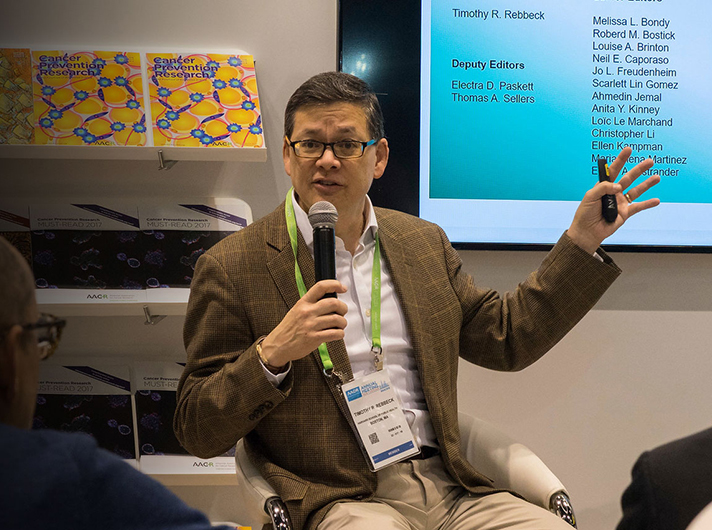
Cancer Prevention Research: Scott M. Lippman, MD. As the founding editor-in-chief, Scott Lippman, MD, established Cancer Prevention Research as the first scientific journal devoted exclusively to cancer prevention. In addition to providing a critical bridge between basic and clinical prevention research, Dr. Lippman’s vision for the journal included creating a forum for emerging science that attempted to extend the current conceptual and practical boundaries of prevention. His focus on cutting-edge science—coupled with an awareness of changes in the current paradigm—established Cancer Prevention Research as the preferred publication outlet for groundbreaking studies, including:
- The first prospective assessment of confirmed HPV status in black versus white head and neck cancer patients, investigating racial survival disparities in the HPV-induced cancer epidemic.
[Settle and Cullen et al., September 2009] - A randomized, placebo-controlled phase II trial of the oral prostacyclin analogue iloprost, which showed an improvement in bronchial histology in former smokers with sputum atypia—the first and only positive chemoprevention trial for lung cancer.
[Keith et al., June 2011] - The first study to demonstrate a durable antibody response from a single dose of HPV vaccine. Several international trials are underway to investigate the study’s implication that that one dose of the HPV vaccine may be sufficient—which could have a major impact on implementation science.
[The CVT Group, November 2013]
Molecular Cancer Therapeutics (MCT): Napoleone Ferrara, MD. In his inaugural editorial as editor-in-chief, Napoleone Ferrara, MD, noted that despite the great progress made in cancer treatment, more than 90% of phase III clinical trials in oncology still fail to meet their primary endpoints—a reminder of the ongoing need to improve the safety and efficacy of new drugs, the predictability of preclinical and early-stage clinical studies, and strategies for clinical drug development. During his tenure, he transformed MCT to address these challenges, expanding the journal’s focus in critical areas such as biomarkers and companion diagnostics as well as new models and technologies. Dr. Ferrara also expanded the number of high-quality reviews in the journal with the launch of MCT Focus issues; under his stewardship, the citation impact of review articles published in MCT increased by 60%.
MCT published high-priority research across the spectrum of oncology drug discovery and preclinical development during Dr. Ferrara’s tenure, including the following highly-cited articles:
- A review of PD-L1 IHC as a predictive biomarker for anti–PD-1/PD-L1 therapy across multiple tumor types.
[Patel et al., April 2015] - A detailed study of EPZ-6438, an EZH2 inhibitor (in phase I trials at the time) that resulted in profound and durable tumor regression.
[Knutson et al., April 2014] - A characterization of CB-839, a newly-discovered glutaminase inhibitor that may have therapeutic benefit for patients with triple-negative breast cancer and perhaps other glutamine-dependent cancers.
[Gross et al., April 2014] - A study demonstrating that the long noncoding RNA ANRIL promotes proliferation of non-small cell lung cancer and inhibits apoptosis.
[Nie et al., January 2015]
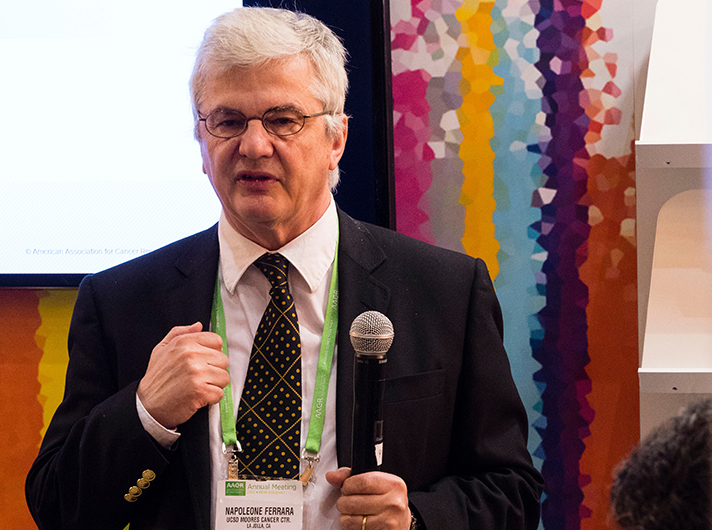
Scientific Publishing by the Numbers
24.373
Current Impact Factor for Cancer Discovery—which ranks sixth out of 222 journals in the Oncology category—according to the 2017 Journal Citation Report.
4
AACR journals ranked in the top 8% in the Oncology category with regard to Impact Factor, according to the Journal Citation Report released in July 2018. Cancer Discovery ranked 6th out of all oncology journals, followed by Clinical Cancer Research (12th), Cancer Immunology Research (16th), and Cancer Research (17th).
35
Days from manuscript submission to first decision (on average). The AACR has made a concerted effort to reduce turnaround times for peer review and to improve the overall author experience.
26 million
Full-text views of AACR journal articles were recorded in 2018.
Editors-in-Chief
The AACR thanks its editors-in-chief for their hard work and stewardship of its scientific publishing program during 2018.
Cancer Discovery
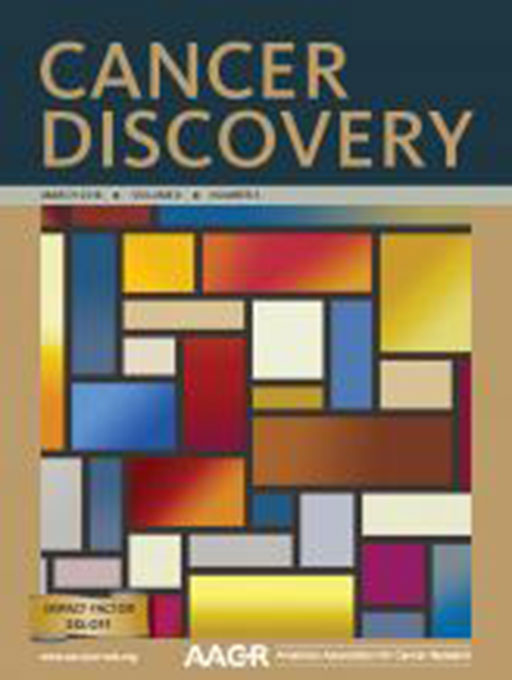

Lewis C. Cantley, PhD, FAACR
Sandra and Edward Meyer
Cancer Center at Weill Cornell Medical College
New York, New York

José Baselga, MD, PhD, FAACR
Memorial Sloan Kettering Cancer Center
New York, New York
[Until December 2018]
Cancer Epidemiology, Biomarkers & Prevention
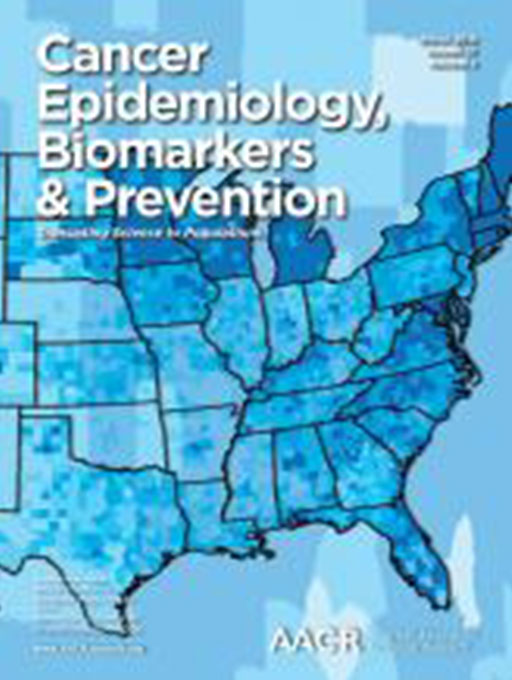
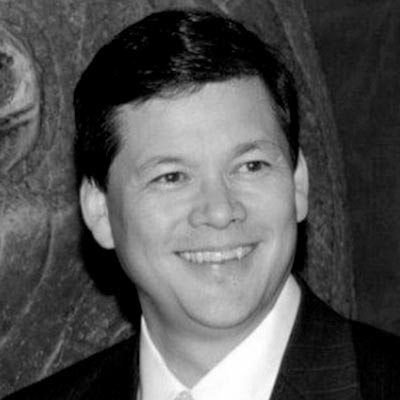
Timothy R. Rebbeck, PhD
Dana-Farber Cancer Institute
Boston, Massachusetts
[Until December 2018]
Cancer Immunology Research
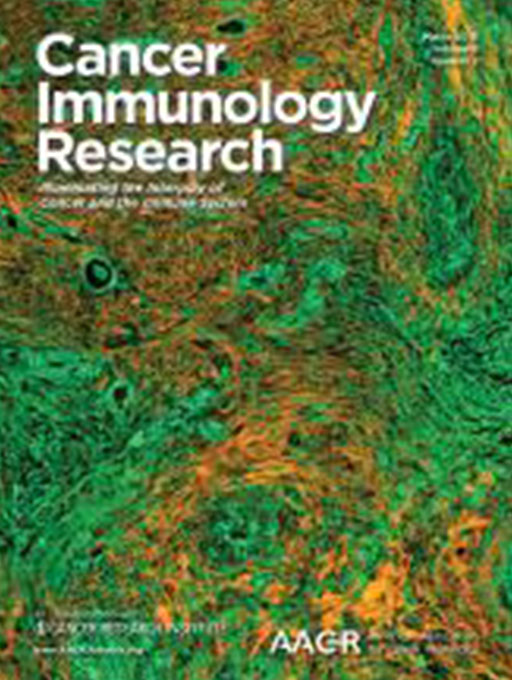

Robert D. Schreiber, PhD
Washington University School of Medicine
St. Louis, Missouri
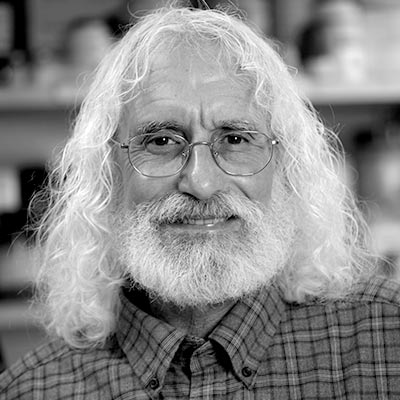
Philip D. Greenberg, MD
Fred Hutchinson Cancer Research Center
Seattle, Washington
Cancer Prevention Research
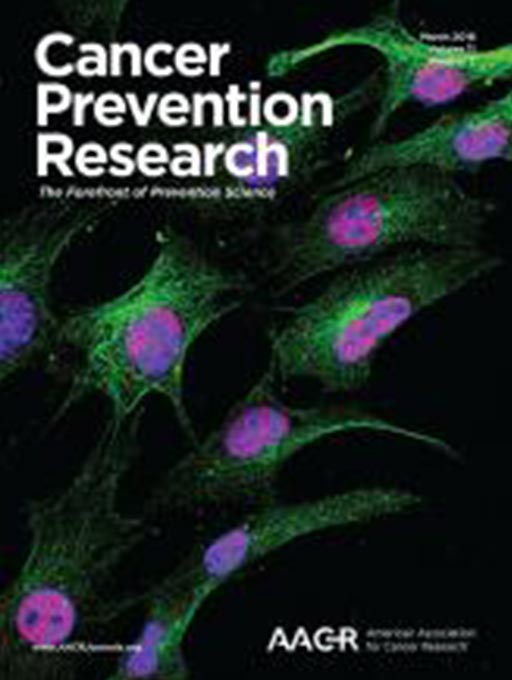

Scott M. Lippman, MD
UC San Diego Moores Cancer Center
San Diego, California
[Until July 2018]
Cancer Research
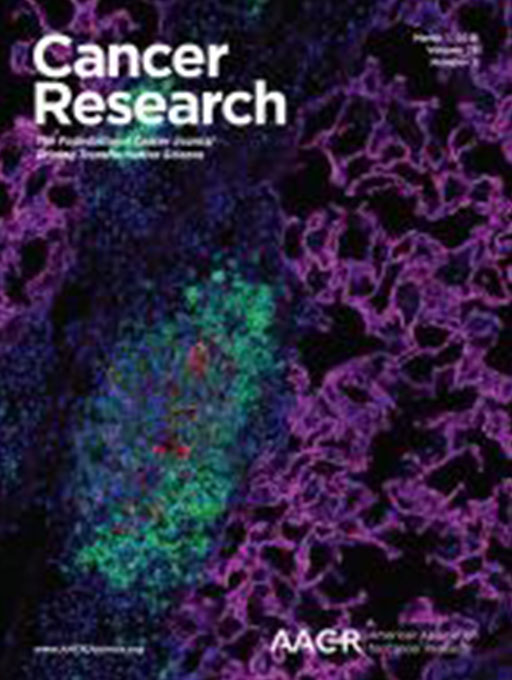

Chi Van Dang, MD, PhD
Ludwig Institute for Cancer Research,
New York, New York
The Wistar Institute,
Philadelphia, Pennsylvania
Clinical Cancer Research
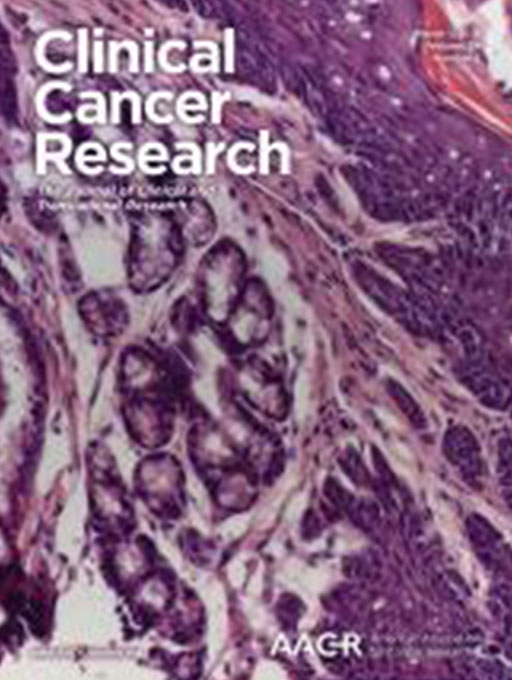

Keith T. Flaherty, MD
Massachusetts General Hospital Cancer Center
Boston, Massachusetts
Molecular Cancer Research
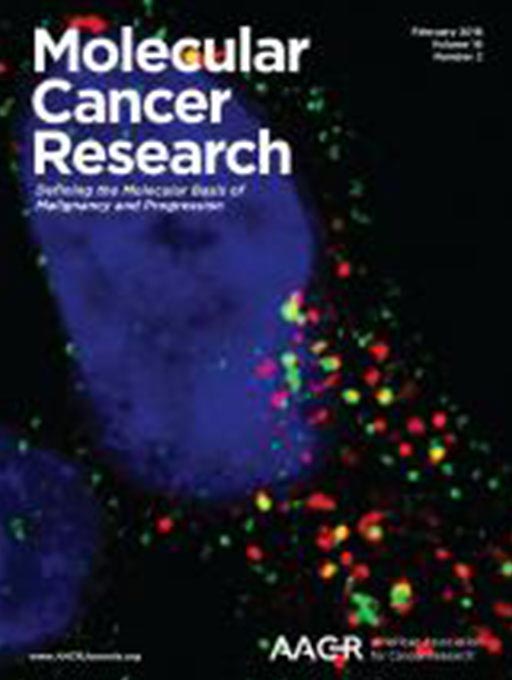

Karen E. Knudsen, PhD
Kimmel Cancer Center
Philadelphia, Pennsylvania
Molecular Cancer Therapeutics
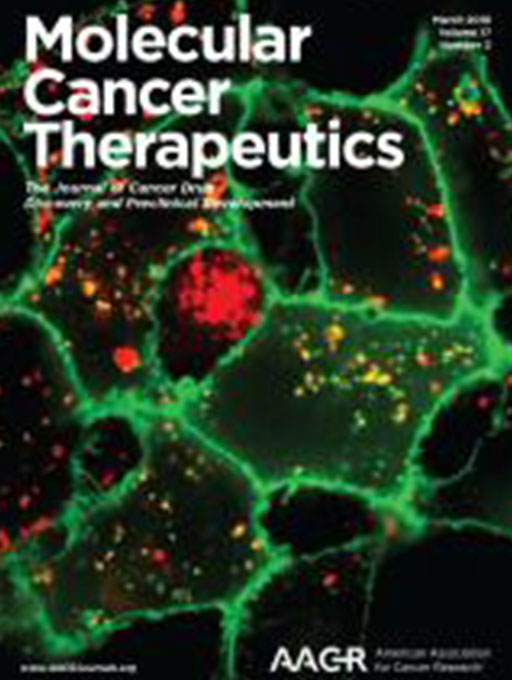
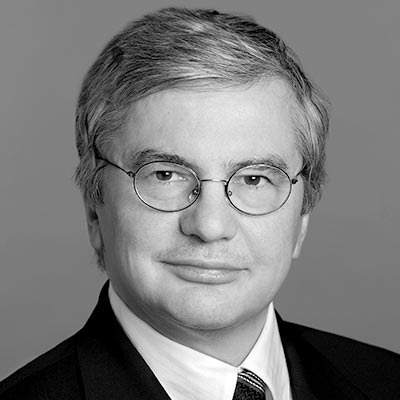
Napoleone Ferrara, MD, FAACR
UC San Diego Moores Cancer Center
San Diego, California
[Until December 2018]